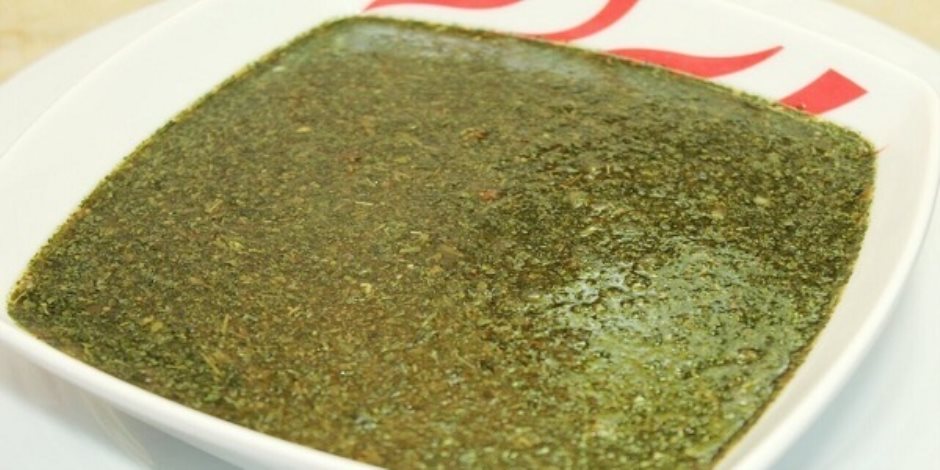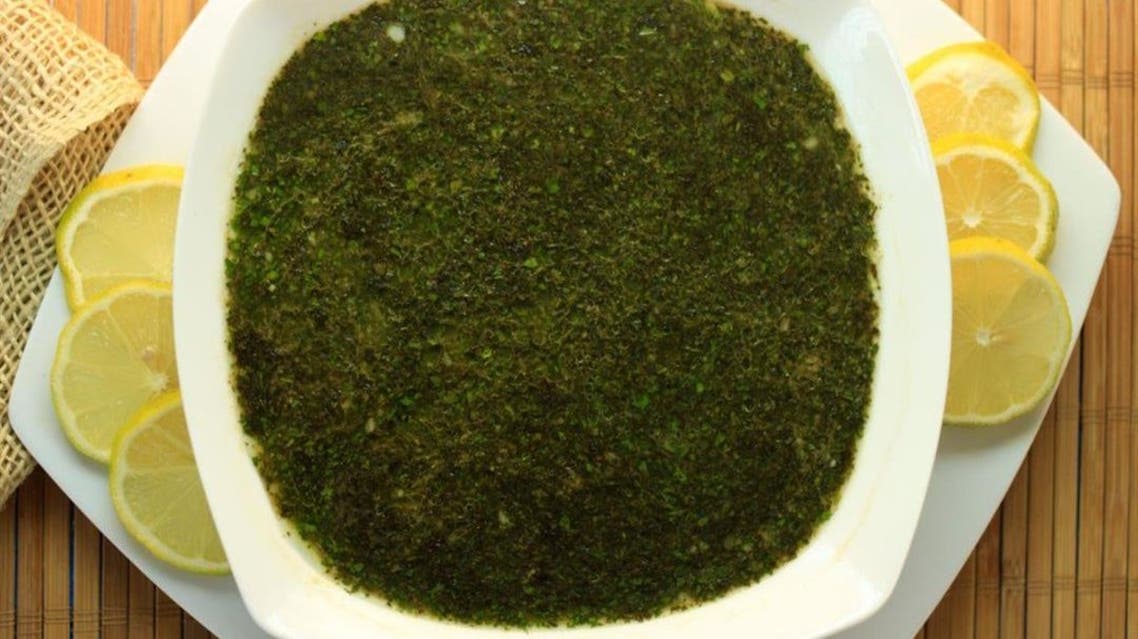Photo via Al Arabiya
From the 7th to the 21st of August, the Coptic Orthodox Church celebrates one of its most beloved fasts of the year; the fast of the Virgin Mary. During this 15-day fast, Copts enjoy special daily hymns and prayers in church, while maintaining a vegan diet at home, with the exception of seafood. While Copts have been experimenting with new vegan dishes in the past few years, to give themselves more food options and shift from the traditional ful and falafel sandwiches, there is one dish that has always reserved a spot on every Copt’s dining table during Saint Mary’s fast: ‘Shalawlaw’.
Essentially, ‘shalawlaw’ is dried molokhia (jew’s mallow), mixed with certain ingredients to give it a burst of flavor.
According to popular tradition, the Virgin Mary ate shalawlaw during the holy family’s trip to Egypt. It is believed that Egyptians learnt about the meal from her and, as a result, it became a tradition to prepare this meal during the 15-day fast carrying her name.

Photo via Watani net
Shalawlaw is both tasty and very easy to prepare. The recipe calls for 1. pouring a cup of cold water on a cup of dried molokhia, 2. adding chopped onion and garlic to the liquid mixture and stirring, 3. adding the juice of one lemon, 4. adding salt to taste and mixing everything thoroughly. With these simple steps, a fresh and tasty dish of shalawlaw will be ready in less than 5 minutes. It can be eaten as soup, or with bread on the side.

Photo via Sout Al Omma
Although it is difficult to prove, shalawlaw is also believed to be an ancient pharaonic dish, more commonly prepared in Upper Egypt.
Fun fact: many Egyptians first heard about this dish last year. Among the endless rumors that spread when COVID-19 was relatively new in Egypt, was that shalawlaw can treat the virus because garlic strengthens and improves the body’s immune system. While it may be an immunity-booster, it is definitely not a cure for the virus.
Subscribe to the Egyptian Streets’ weekly newsletter! Catch up on the latest news, arts & culture headlines, exclusive features and more stories that matter, delivered straight to your inbox by clicking here.







Comments (7)
[…] Why is Shalawlaw associated with the fasting of the Virgin Mary? Egyptian artist creates miniature sculptures of influential figures […]
[…] المصدر by [author_name] كما تَجْدَرُ الأشارة بأن الموضوع الأصلي قد […]